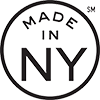Medical secretaries are administrative professionals who use their skills in the healthcare industry. They may work for scientists, doctors, physical therapists, or other medical professionals. Their duties include transcribing oral records, billing insurance companies and patients, gathering and recording data, storing and retrieving files, and scheduling appointments.
If you’re interested in performing administrative tasks in the healthcare field, you can follow these steps to become a medical secretary.
Take appropriate high school classes.

Preparing for your chosen career can begin when you’re in high school. To qualify for most career opportunities, applicants need to demonstrate they possess the skills and knowledge needed to perform required tasks. You can acquire relevant skills by taking computer courses and learning to use word processing programs. Courses that teach you how to use spreadsheets will also be beneficial.
Medical secretaries also need strong writing skills, and they must be familiar with medical terminology. English, biology, and health classes can equip you with the skills and knowledge needed to enter this career field.
You may also benefit from taking bookkeeping and accounting courses in high school. These courses will develop your mathematical skills and prepare you to handle medical billing tasks.
Hone the right skills.
Secretaries need strong organizational skills. They may need to access documents from hundreds of files and understand how filing systems work to locate files efficiently. Secretaries also need good decision-making skills because they must prioritize tasks. The ability to multi-task is also vital because some secretaries handle phone calls and emails while assisting patients in person. You can develop these skills by pursuing volunteer opportunities or internships that involve filing and other administrative tasks.
Research training options.
You can prepare for a career as a medical secretary by attending a college or vocational school program. These programs require applicants to have their high school diploma or GED. Some schools also require students to be at least 17 years of age or older before being admitted.
Investigate medical secretary programs to determine what high school courses you may need to take or other steps you can take to fulfill the application requirements. It’s also a good idea to meet with program staff before you apply. If they have limited space for new applicants, you may be able to take training that will make your application stand out. For example, if you learn American Sign Language (ASL), you may be an ideal candidate to work in an audiologist’s office. Your community may also have a high percentage of residents who speak Spanish. If that’s the case, Spanish skills may be an asset when you’re pursuing employment, and may also strengthen your college application.
Look into postsecondary training

Enroll in a reputable, licensed medical secretary program that includes all the courses you will need to enter your field. You should choose a college that includes training in ethics, terminology, billing codes, and office procedures. Medical secretaries typically need to master medical terminology because it’s used on billing forms and patient records. When transcribing dictated notes, medical secretaries also need familiarity with medical terminology and anatomy and physiology to ensure they understand the information being relayed.
Postsecondary programs should also include courses that teach you to file insurance claims and collect payments. Medical secretaries also work with sensitive information and must comply with the Health Insurance Portability and Accountability Act (HIPAA). Your training should cover relevant legal requirements that apply to patients and their medical records.
Make sure you have workplace essentials.

Medical secretaries work in the healthcare field and must wear appropriate professional attire, such as petite pant suits. Once you’re ready to enter your career field, invest in a wardrobe suited to your profession. Dress pants, dress shirts, blazers, and pencil skirts are all appropriate for staff who work in medical offices. You may also want to compliment your outfits with a briefcase or tote bag.





